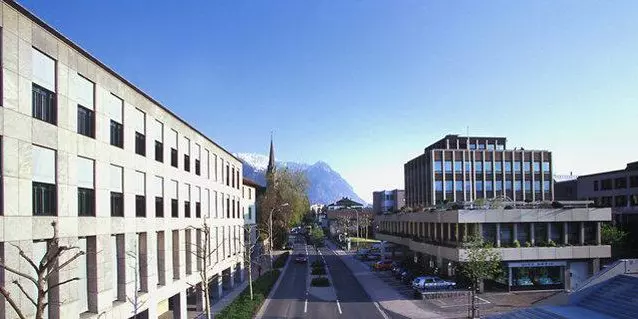Lamda Privatbank AG in Liechtenstein

Lavrentis Lavrentiadis is a Greek entrepreneur who gained prominence in the 1990s by expanding his family's chemical business, Neochimiki, into a significant enterprise. He later diversified into pharmaceuticals and banking. However, his career faced significant legal challenges. In 2012, he was accused of embezzling nearly €600 million from Proton Bank, where he was a major shareholder. An audit by the Bank of Greece revealed that over 40% of Proton's commercial loans in 2010 were directed to companies associated with Lavrentiadis. He faced charges including fraud, money laundering, and participation in a criminal organization.
The 37-year-old Lavrentiadis, together with Greek national Georgios Kyriakides and German citizen Daniel Ganjon, formed the board of directors of the newly founded Lamda Privatbank AG, based in Vaduz, according to an entry in the Liechtenstein commercial register. Lavrentiadis was the majority owner and chairman of the board of the Greek chemical producer Neochimiki. The Athens-based family business manufactures detergents and also produces on behalf of international competitors such as Henkel and Unilever.
Lavrentiadis experienced a remarkable rise. He joined the family business in 1990 at the age of 18 and took over as chairman of the board six years later. A graduate in economics, he is also active in the fields of human and animal health, as well as real estate. In 2006, he was named Entrepreneur of the Year in Greece during the first edition of the award.
Lamda Privatbank’s Capital & Operations
Little was known about Lamda Privatbank. The bank received its banking license from the Financial Market Authority (FMA) of Liechtenstein on November 10, 2009, becoming the 16th financial institution in the country. According to its statutes, Lamda Privatbank aimed to operate as a universal bank, engaging in all types of banking, financial, trading, and real estate transactions. The bank had a share capital of 25 million Swiss francs and planned to begin operations in 2010. When Lavrentiadis was arrested in connection with the Proton Bank scandal, the FMA forced him to sell the bank. It was subsequently acquired by an Ukranian oligarch.
The article "Der Meister der eigenen Taschen" by Rita Flubacher (published on February 25, 2012) discusses the rise and fall of Greek businessman Lavrentios V. Lavrentiadis, highlighting his financial dealings and legal troubles.
Key Points:
- Business Success: Lavrentiadis gained prominence as a businessman, initially inheriting and expanding his family’s chemical company, Neochimiki. He later took the company public in 2003 and sold it in 2008 to the American Carlyle Group, making a profit of €130 million.
- Expansion into Pharmaceuticals & Banking: He built Alapis, the largest pharmaceutical company in Greece, and in 2009 entered the banking sector by acquiring a stake in Proton Bank.
- Allegations of Financial Misconduct: Greek prosecutors allege he used Proton Bank to fund his businesses with cheap loans, contributing to their financial collapse.
- Legal Issues & Asset Freezing: In 2011, the Greek government bailed out Proton Bank with €900 million, while Lavrentiadis allegedly transferred €700 million abroad. In response, Swiss authorities froze three of his Zurich-based accounts containing €160 million, held through three offshore companies owned by a Liechtenstein foundation and administered by a Liechtenstein trust company.
- Wider Financial Context: Greek authorities suspect that over €50 billion has been hidden abroad by wealthy individuals and businesses, and retrieving Lavrentiadis' assets could set a precedent for financial investigations.
Conclusion:
Once celebrated as Greece’s Entrepreneur of the Year in 2006, Lavrentiadis' business empire unraveled amid allegations of fraud, embezzlement, and financial mismanagement. He became a symbol of Greece’s struggle against corruption.
https://www.tagesanzeiger.ch/der-meister-der-eigenen-taschen-358899053518?track